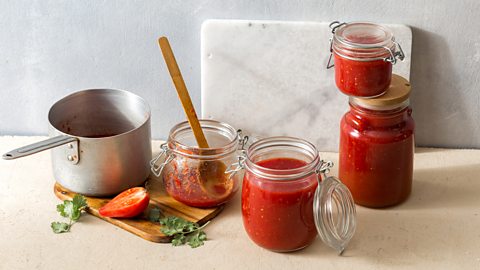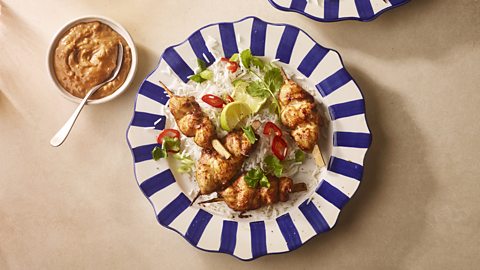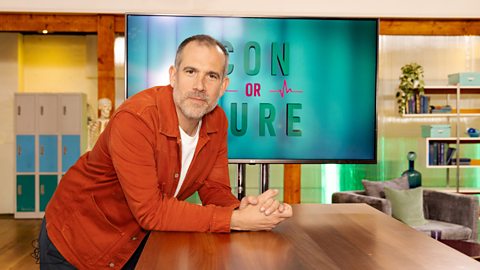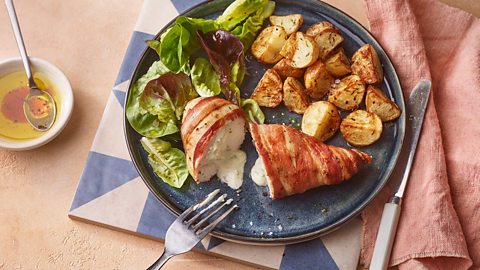Which ultra-processed foods are good for you?

Heavily processed convenience foods are things we love to hate and hate to love. But are some ultra-processed foods actually good for us?
More than 50 percent of our energy intake in the UK comes from ultra-processed foods, according to a study reported in the British Medical Journal. These foods include industrially produced cereals, sauces, baked goods and ready-meals. They can be packed with hidden sugars, salt and fat. Eating them regularly is associated with obesity and even ‘early death’. But are ultra-processed foods ever healthy? We spoke to registered dietitian and nutritionist Ro Huntriss to find out…
What are ultra-processed foods?
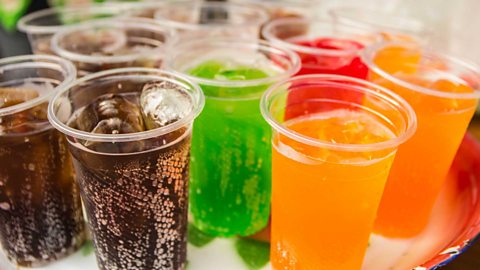
“Most foods are processed in some way, for example to enable preservation”, says Huntriss, “but the term ‘ultra-processed’ refers to foods that often have a long ingredients list, with [some] you wouldn’t be familiar with. Food-based ingredients are often combined with sweeteners, colourings, stabilisers and preservatives and go through multiple processes to formulate the end-products. Examples include ice cream, fizzy drinks, hot dogs and some oven chips.”
Foods like these, along with crisps, biscuits and cakes, aren’t what anyone would class as healthy, but other ultra-processed foods can be harder to judge. You might wonder if a jar of pesto, a tin of soup, or a veggie lasagne ready-meal, for instance, are healthy. Let’s take a look.
Ultra-processed foods with benefits
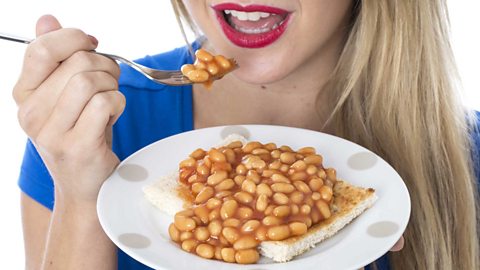
As with other types of food, everything in moderation is key. “Inclusion of some of these foods as part of an otherwise healthy and balanced diet is acceptable. We live in a fast-paced world, and as much as an entirely whole-food, unprocessed diet would be great, it simply is not realistic for the majority of people”, says Huntriss.
She identifies some ultra-processed foods that may be beneficial to health:
Wholegrain breakfast cereals with no added sugar“are fortified with vitamins and minerals such as B vitamins, calcium and iron, helping you reach your recommended daily intake, and are a source of fibre, which can contribute to cardiovascular health, normal bowel function, gut health and regulation of blood glucose levels.”
Tinned baked beans– “Made with white beans such as haricot or cannellini beans, these are high in vegetable protein and fibre, and low in fat, and count towards your five portions of fruit and vegetables per day. They also contain minerals such as iron, zinc and B vitamins. They contain some added salt, but versions with no added sugar are available.”
Pre-packaged wholegrain sliced bread– “Wholegrains are packed with nutrients, including fibre, protein, B vitamins, antioxidants, calcium and iron. A diet rich in wholegrains has been shown to reduce the risk of many chronic health conditions, and helps us reach our target of 30g of fibre a day.”
Unsweetened soy or plant-based drinkscan be ultra-processed. “If choosing versions fortified with vitamins and minerals, these drinks may provide a similar amount of calcium to cow’s milk, promoting bone health. Fortified plant-based drinks can also contain B vitamins, iodine and Vitamin D.”
What should you look for on the label?
“Some [ultra processed foods] are energy-dense, high in added sugar, salt and saturated fats, contain little dietary fibre and have lost nutritional value through the multiple processes they have experienced”, says Huntriss.
“A diet high in ultra-processed foods is not recommended”, she continues. “Research has demonstrated a direct association between intake of ultra-processed foods and prevalence of obesity, cardiovascular diseases and cancer.”
Is everything else ‘junk’ food?

So, apart from those four foods, is everything else off the cards entirely? Not exactly.
“Eating ultra-processed foods on occasion is not likely to cause any risk to health”, says Huntriss. “Cakes, biscuits and crisps are foods that many people enjoy as part of their diet. Having a healthy diet is all about balance.”
Making ultra-processed foods an occasional stop-gap rather than an everyday part of your diet is an easy rule of thumb. “Although high-fat, high-sugar foods should not be consumed frequently, they can still be included, albeit less frequently, as part of a healthy, well-balanced diet.”
That said, Huntriss would like to see “less intensive marketing in supermarkets of ‘unhealthy’ high-fat, high-sugar and high-salt foods”, with more whole foods centre stage. “The marketing, convenience and low cost of these foods allows them to often take the place of more nutritious options and home cooking, leading to detrimental effects on our health.”
To keep you healthy, Huntriss advises a diet based on:
- wholegrains
- fruit and vegetables
- nuts and seeds
- lean protein
- more unsaturated fats (from plant sources and oily fish) than saturated fats (mainly animal sources)
- dairy or a calcium-fortified dairy alternative
- limited salt intake
- and stay hydrated!
